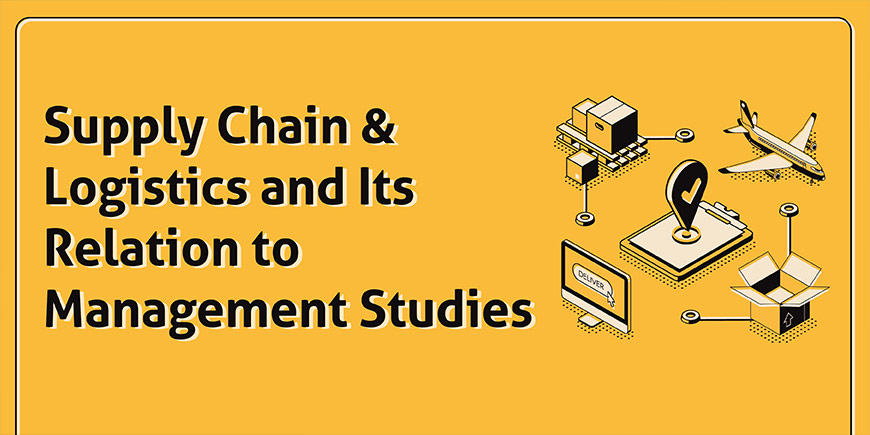
Supply Chain & Logistics Management is a set of approaches utilized to efficiently integrate the suppliers, manufacturers, warehouses, and the stores, in order to minimise system-wide costs while meeting service-level criteria, merchandize is created and supplied in the appropriate amounts, to the right locations, and at the right time.
Supply chain processes affect both the speed and efficient delivery service of the company. Speed and efficiency cost money. It is therefore important to strike balance between being highly efficient and the cost reduction strategies. We can achieve this balance by having effective supply chain management. For an effective supply chain, the SCM Manager should be able to predict good quality of demand forecast of products/services, design efficient procurement and logistics systems and have a good understanding of internal planning.
Efficiency and responsiveness are dual targets for any supply chain:
- For any level of responsiveness, a supply chain must aim to operate at the lowest costs.
- Similarly, for a given cost level, a supply chain should aim to operate at the highest level of responsiveness.
Supply chain management is especially important because of following reasons-
- To gain efficiency from procurement, distribution, and logistics.
- To cut inventory shipping costs.
- To address the issues posed by globalisation and the lengthening of supply chains.
- To face the emerging e-commerce problems.
- Managing the supply chain's complications.
- To manage the inventories needed across the supply chain.
Whole of the supply chain can be broken into three areas- Source, Make and Deliver. Inventory and lead time reduction is to be applied in all the three areas for eliminating the wastes in the supply chain. Eliminating the inefficiencies in the supply chains can save millions of dollars.
The Supply Chain drivers, namely, logistical (Facilities, Inventory and Transportation) and cross functional (Information, Sourcing and Pricing) drivers, should be structured in such a way, such that the appropriate level of responsiveness may be achieved at the lowest feasible cost, so as to improving supply chain surplus and hence the firm's business performance.
Learning from our experience of Covid-19 last year, organizations who could adopt ‘Agile Supply Chain,’ survived. Agile supply chains are designed to be highly flexible in order to swiftly respond to changing circumstances. This technique is considered important for the organization that wants to be able enough to adapt to the unanticipated external economic changes, such as economic swings, changes in technology or changes to customer demand .We have seen recent incidents of the medical oxygen shortage, which could have been reduced if our supply chain had been agile. By using an agile supply chain, organizations can swiftly alter their sourcing, logistics, and sales.
As India continues to address the economic slowdown, the global economic outlook, and particularly that of India, is likely to improve dramatically. With a new administration in place, several policies are likely to be enacted that would rev up India's economic engine, notably in the Corporate and Small and Medium Enterprises (SME) sectors, resulting in increased demand for the Supply chain and logistics sector.
I spent almost 40 years in Industry, in materials function, but the Supply Chain concept started only in the last 15-20 years. This concept is yet to be matured in Indian MSMEs. Supply Chain Management can play a major role in reducing product cost without compromising on the desired level of services to Customers. This is a very important aspect to remain competitive in the industry. The Supply Chain concept calls for bringing major functions, like Customer order planning, Production planning, Procurement planning and logistics, together under one umbrella which will help in better coordination in the industry and in achieving cost reduction of product by eliminating nonvalue added activities in the entire operations. I see huge opportunities in the field of Supply Chain and Logistics in future, in the Indian Industry.

Prof. Purushottam Khandelwal
B.E, BITS Pilani
A result-oriented professional with nearly 36 years of experience

